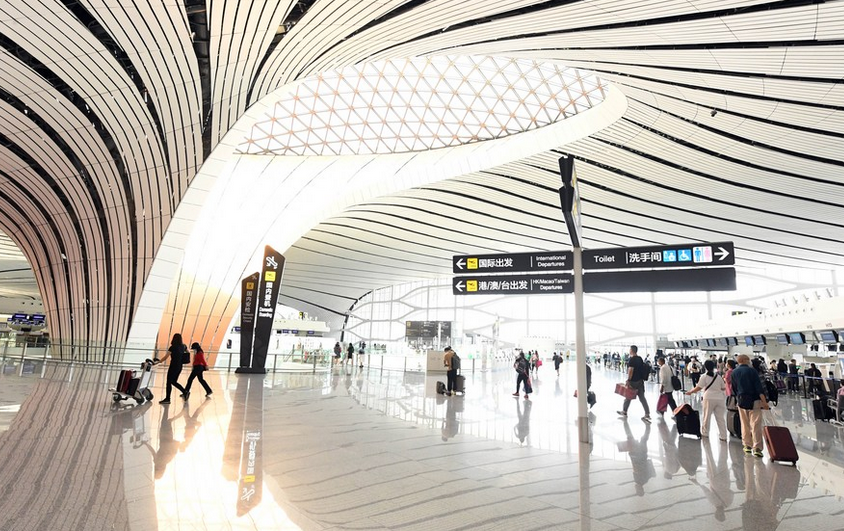by Xinhua writer Hu Tao
BEIJING, Nov. 17 (Xinhua) -- The green transformation of China's civil aviation industry is generating new business opportunities and vast space for innovation to industry players both at home and globally.
The civil aviation authorities are committed to pushing forward the green transformation to ensure the industry's sustainable and healthy development, according to the Civil Aviation Administration of China (CAAC).
In view of the goals of peaking its carbon dioxide emissions before 2030 and achieving carbon neutrality before 2060, China is speeding up the transformation to a clean and low-carbon energy consumption structure.
The 14th Five-Year Plan period (2021-2025) is key for the civil aviation industry to upgrade from energy conservation and emission reduction to green and low-carbon development, said Zhang Qing, an official of the CAAC, at a recent press conference.
"Eyeing the carbon-peaking and carbon-neutrality goals, we will safeguard the lifeline of safety and balance the ambition and pragmatic style of work." Zhang said.
The CAAC will take carbon reduction as the key to promoting the green transformation, which highlights intelligence, greener energy and emissions reduction.
INNOVATIVE MOVES FORWARD
The civil aviation authorities and industry players have introduced diverse efforts such as upgrading infrastructure, improving operation management and introducing new technologies.
On Nov. 12, China's Xiamen Airlines and the Industrial Bank jointly introduced the country's first carbon-neutrality ticket, a move to generate efforts from diverse parties to boost low-carbon flight.
While a passenger buys such a carbon-neutrality ticket, a share of the fare will be placed into the marine carbon sink fund to offset some of the carbon emissions from the flight. The ticket and the flight will be certified as carbon neutral.
The first batch of carbon sink funds will be used in the ecological restoration of mangroves forest, which is a highly valued ecosystem boasting rich biodiversity, according to Xiamen Airlines.
One of the world's largest express transportation companies, FedEx highlighted green, digital and efficiency at the fourth China International Import Expo (CIIE).
"In China, with key initiatives including vehicle electrification, sustainable facilities and paperless shipping, FedEx is on the way to reducing the carbon footprint of its operations and attaining sustainable development," said Eddy Chan, FedEx senior vice president and president of FedEx China.
VAST NICHE MARKET
"China is a vast niche market for global aviation players, with great opportunities in its low-carbon development and the civil aviation industry's green transformation," said Wang Qi, vice president of sales and chief representative of ATR China.
The country is endeavoring to make basic air travel services reach more people, especially those living in remote regions by coordinating development of both trunk and regional route air service.
"It will be more fuel-efficient and cost-effective to use suitable aircraft models on the right air routes." Wang added that focusing on developing aircraft with 30 to 78 seats, the company is ambitious to have its role in serving China's regional aviation market.
"China is a visionary in growing in a low-carbon and green way. We have a lot of progress here and will have more opportunities to go forward," said Steven Lien, president of Honeywell China and Aerospace Asia Pacific.
The global high tech-company is exploring more business opportunities in China, by supporting Chinese airlines with more efficient flights, providing more efficient engines, and exploring applications of sustainable aviation fuels and urban air transport powered by clean energy.
"We look forward to continuing shoulder-to-shoulder advancement with our Chinese partners to build a green, low-carbon industrial ecosystem," said Lien. Enditem




 A single purchase
A single purchase









